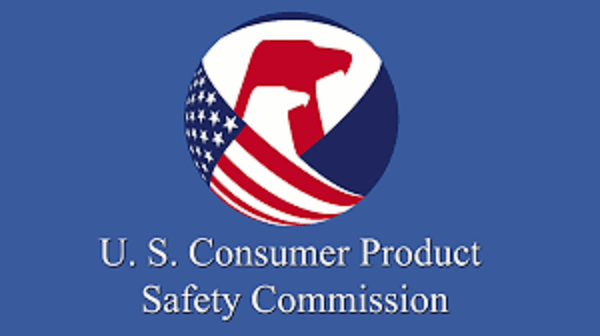
The U.S. Consumer Product Safety Commission (CPSC) is initiating a pivotal transformation that will fundamentally alter how manufacturers and importers verify the safety and compliance of consumer products entering the United States.
Through the issuance of a supplemental notice of proposed rulemaking (SNPR), the CPSC is setting the stage to streamline the certification process via electronic filing (eFiling), in partnership with U.S. Customs and Border Protection (CBP). This endeavor extends beyond merely updating existing procedures; it aims to enhance consumer protection by making the importation process more efficient and ensuring compliance with safety standards. With the expectation that these changes will become mandatory by 2025, it's crucial to explore the implications and benefits of the CPSC's innovative approach to product safety and compliance.
Understanding the CPSC's eFiling Initiative
At its core, the eFiling initiative by the CPSC is designed to streamline the process of submitting Certificates of Compliance for consumer products. These certificates are crucial documents that verify a product meets all applicable consumer product safety rules and standards. Historically, ensuring these certificates accompany shipments has been a manual and paper-intensive process. However, the CPSC's move towards eFiling aims to digitize this process, allowing for more efficient, accurate, and timely submission of compliance data.
Why eFiling?
The primary goal of implementing eFiling is to improve the overall safety of consumer products imported into the United States. By enabling electronic submission of certificates, the CPSC can better assess risks, target non-compliant goods, and enforce regulations more effectively. This not only helps in interdicting unsafe products at the ports but also facilitates the smooth entry of compliant goods into the market.
The Beta Pilot Program
In preparation for a permanent eFiling system, the CPSC launched a Beta Pilot Program, inviting 50 importers to participate. This six-month initiative is a critical step in testing and refining the eFiling process. Importers participating in the Beta Pilot can submit certificate data electronically through the CBP's Automated Commercial Environment (ACE), marking a significant leap towards digital transformation in trade compliance.
Key Requirements for eFiling
For successful eFiling, importers need to provide several data elements, including:
● Identification of the finished product
● Applicable consumer product safety rules
● Manufacturing and testing dates and locations
● Details of the parties responsible for testing
● These requirements ensure that all necessary information is readily available for CPSC's review, enhancing the ability to screen and approve shipments efficiently.
How eFiling Benefits Importers and the Trade Industry?
The shift to eFiling offers numerous advantages for both the CPSC and the trade industry. For importers, the benefits are clear:
● Reduced Risk Scores: By filing valid certificate data electronically, importers can see a decrease in their risk scores. This can lead to fewer cargo examinations at ports, saving time and reducing costs.
● Enhanced Efficiency: eFiling allows for real-time data capture and streamlined processes, making compliance with U.S. laws and regulations easier and more efficient.
● Cost Savings: Automating the filing process can significantly reduce the costs associated with manual paperwork and delays.
● Improved Focus on Safety: With more accurate and timely data, the CPSC can concentrate its efforts on higher-risk shipments, improving consumer safety without unnecessarily impeding the flow of compliant goods.
The Future of eFiling
While the Beta Pilot Program is an important step towards the implementation of eFiling, the vision for the future extends much further. The CPSC anticipates that eFiling will become a mandatory part of the importing process for all regulated consumer products. This transition to digital will not only improve the efficiency of trade but also ensure that consumer products entering the U.S. market meet the highest safety standards.
Conclusion
The CPSC's move towards electronic filing of Certificates of Compliance represents a significant milestone in modernizing trade practices and enhancing product safety. By leveraging technology, the CPSC and importers can work together more effectively to protect consumers. As the eFiling system evolves, it promises to bring about a new era of efficiency, safety, and compliance in the importation of consumer goods into the United States. Manufacturers and importers should prepare to embrace this change, recognizing the many benefits that eFiling will bring to their operations and, ultimately, to the consumers they serve.
BACL Service:
BACL can provide you efficient and reliable global market certification services, such as IECEE CB Scheme NCB and CBTL, United States(NRTL, FCC, ENERGY STAR), Canada(ISED, SCC), EU(CE), United Kingdom (UKCA AB & AOC), Northern Ireland(UKNI), Korea(KC), Japan(MIC), Singapore(IMDA), Hong Kong(OFCA), Taiwan (NCC, BSMI), Egypt (NTRA, GOEIC), South Africa(SABS), Vietnam (MIC), Saudi Arabia (SASO, CITC), Philippines (NTC), Thailand (NBTC), Malaysia (SIRIM), India(BIS, WPC, TEC)and other services to assure your products still smoothly entering into the international trade market even when the international trade barriers are becoming increasingly fierce.

 CN/中国
CN/中国  US/USA
US/USA  KR/Korea
KR/Korea  DE/Germany
DE/Germany  ES/Spain
ES/Spain VN/Việtnam
VN/Việtnam